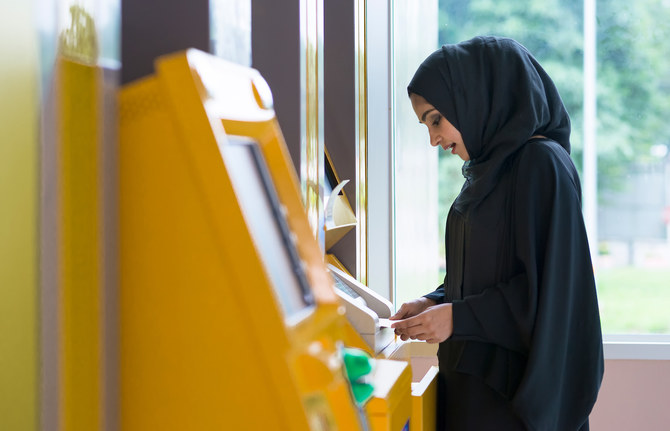LONDON: London is perfectly placed to continue its rise as a global centre for Islamic finance in the coming decade, and the dual challenges posed by Brexit and the coronavirus (COVID-19) pandemic are unlikely to derail that ascension, according to experts and industry insiders.
It has been a hard year for the global financial markets. The pandemic’s emergence saw 30 percent of global equity wiped out in a matter of weeks in March, and the recovery since then has been marred by intermittent shocks and an atmosphere of deep uncertainty. The world of Islamic finance was no exception to this hardship.
According to Salaam Gateway’s annual State of the Global Islamic Economy report, released this month, global Islamic finance assets were valued at $2.88 trillion in 2019, with roughly $6 billion of Shariah-compliant assets held in the UK — the most in the West. However, globally, “due to the impact of the COVID-19 crisis, the value of Islamic finance assets is expected to show no growth in 2020,” despite consistent growth of a minimum of three percent in previous years.
Many in the UK fear the devastating economic impact of an ill-timed separation from the European Union’s free trade area, just as the country plots its long and difficult recovery from the pandemic, will compound the economic misery after a year of job losses, lockdowns and costly government bailouts.
But despite the near-term challenges, Martina Macpherson, senior vice president of partnerships and engagement at Moody’s ESG Solutions Group, told Arab News that she expects the global Islamic finance industry to ultimately continue to see growth move in an upward direction.
“Islamic finance (will) continue to expand in the next decade across regions and asset classes,” she said. “From a market of just $200bn in 2003, the Islamic Finance sector is expected to grow to over $4trn in assets by 2030.”
Thanks to London’s unique position as a finance and technology hub, Youness Abidou, CEO of Shariah-compliant property investment firm Nester, told Arab News, the city is perfectly positioned to be a key beneficiary of the explosive growth of this industry in the coming decade.
The British capital, he said, has “arguably the perfect mix to support investment into innovative growth whether that be fintech (financial technology) or Islamic Finance. Interestingly, London is considered a hub for both these sub sectors, yet uncertainty lies ahead … the true impact of Brexit remains unknown.”
However, he continued: “I believe true free market economics will prevail. There is a growing demand for Islamic finance products. Innovation in the sector is necessary and so supply has to catch up.”
Abidou explained that London’s fintech sector, in particular, is central to London’s Islamic finance future. Fintech, he said, “continues to challenge the ethics of traditional banking, a fundamental principle of Islamic finance, and so coupling Islamic finance with fintech will drive innovation and growth of products to a wholly under-serviced population.
Peter Cunnane, national and international strategy lead at Innovate Finance, echoed these views to Arab News, hammering home the importance of the British capital’s burgeoning fintech scene for the UK’s future in a post-Brexit, post-pandemic world.
“The UK fintech ecosystem provides global leadership and knowledge, not just in the broad range of products and services offered by our businesses but also through our deep pools of expertise, and our international connectivity which in turn strengthens our domestic industry.
“This expertise comes particularly to the forefront during times of crisis,” he added.
One of the most important factors that has allowed the UK to ascend to such an imposing position in the world of Islamic finance is the top-down support the sector has been receiving from the government for years, Samina Akram, managing partner at Samak Ethical Finance, told Arab News.
“Our government’s and our regulator’s commitment and support has been at the heart of the development of the UK Islamic finance sector. The UK was the first member of the EU to authorise Islamic banks, and has been providing Islamic financial service for over 30 years. Over the years our sector has attracted business, capital and investment into the country,” she said.
But after the pandemic, and when the dust clears from Brexit, she argued that not only will Islamic finance stand to gain from the city’s infrastructure and human capital, but the unorthodox approach it takes toward investment — one answerable not only to financial returns but to a set of moral principles — is going to be an increasingly compelling argument that will draw all types of investors, not just Muslims, to invest ethically.
“COVID-19 has slowed us down as humans and is forcing us to reflect,” she said. “What type of future do we want to create for our next generation? What type of impact can I personally make on the world and the planet? These personal and meaningful questions are having major implications on our financial decisions.” And when people ask those questions, she explained, the world of Islamic finance stands to gain.
Akram continued: “At the heart of Islam lies cooperation, transparency and fairness. In essence, it aims to establish a just society, so everyone has a chance of leading a dignified life. This style of ‘finance of empowerment’ is appealing to Muslims and non-Muslims alike.”
She added: The future is looking extremely bright not just for the UK Islamic financial system, but the global Islamic financial system.”
















